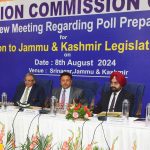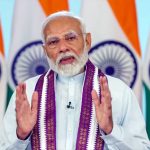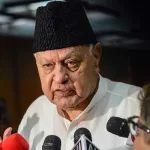In April 2022, former UK Prime Minister Boris Johnson, in a moment of characteristic bombast, promised the burgeoning trade deal with India “done by Diwali”. While Johnson’s promise now echoes as an empty boast, it underscored the Conservatives’ ambition to recalibrate the UK’s global trade post-Brexit. Three British prime ministers and 14 rounds of bilateral negotiations later, a deal remains elusive. Yet the noise in both camps is overwhelmingly positive, so much so that the FTA sits at the top of the post-election Indian government’s initial 100-days agenda. Recent general elections in the UK and India delayed proceedings, but they are far from the sole determinants of the FTA’s fate. Even while a Modi-led government has been a permanent fixture throughout the previous 14 rounds of negotiations, the UK election result has shifted the dynamics and faces at the negotiation table, but not the core substance of the discussions. Indian governments have historically been reticent in trade negotiations, often favouring a measured, protracted approach. India’s 16-year negotiation and eventual agreement with the European Free Trade Association (EFTA) is a case in point. However, the Modi administration appears to have shifted gears, signalling a new intent and urgency, as evident in recently signed trade agreements with the UAE and Australia. Through trade deals, New Delhi is attempting to partially shed its protectionist reputation towards a more business-friendly environment, integrate itself better in global supply chains, and increase exports to over US$2 trillion by 2030. For the Tories, the FTA was envisioned as a post-Brexit triumph, showcasing the UK’s new bargaining power unburdened by EU restrictions. Characteristically, it was never realised under their leadership. With Labour’s resounding victory in early July, Sir Keir Starmer inherits a deal seemingly teetering on the brink of completion. Despite market perceptions of Starmer’s inclination towards strengthening Atlantic-European ties, an FTA with India represents a pragmatic opportunity. Just before elections in both countries, British Secretary of State for Business and Trade, Jonathan Reynolds, visited Delhi in February 2024 as Labour Shadow Secretary then and held talks with India’s Commerce and Industry Minister, Piyush Goyal. Only two weeks into his new tenure and British Foreign Secretary David Lammy, who had joined Reynolds on his pre-election visit, has already touched down once more in New Delhi, indicating Labour’s keen interest in finalising the FTA. The dialogue has long been positive on both sides regarding the FTA negotiations, but the current state of play seems especially propitious. Current trade between the UK and India is estimated at £39 billion (US$49.8 billion) annually. By some estimates, an FTA between the two countries could double bilateral trade to US$100 billion by 2030. Out of the 26 chapters in the agreement, most issues have either been resolved or are in advanced stages. Yet longstanding areas of contention persist. Migration, mobility, and a liberalised visa regime for Indian workers have proven to be a particularly thorny issue in the FTA negotiations, especially under the Conservative government. Former Home Secretary, Suella Braverman, set back talks last year with her remarks on Indian migrants constituting the largest number of visa overstayers in the UK. A Labour government, less encumbered by the immigration rhetoric that hamstrung the Tories, offers a clearer path to resolving this issue. On the UK’s part, it seeks a lowering of Indian tariffs on goods such as whisky and cars, currently at almost 100-150 percent. Britain also wants greater access to the Indian market for its financial, legal and other services, which account for 80 percent of the British economy—a challenge for India amidst fears of an influx of foreign competition. An issue that has more recently emerged for New Delhi centres around financial burdens, such as paying for national insurance despite being ineligible for UK social security benefits, placed on Indians working temporarily in the UK. Such issues highlight the broader challenge of balancing domestic policies with global trade ambitions. While the negotiations will take their own course, both partners can still follow the Roadmap 2030 on trade and ramp up investments in each other’s economies. In 2021, the outward stock of the UK’s foreign direct investment (FDI) was £19.1 billion (US$24.4 billion), while India’s FDI in the UK was £9.3 billion (US$11.9 billion). If investments gather momentum, this is bound to result in greater two-way bilateral trade flows in the future. The UK-India FTA negotiations are at a pivotal juncture. The Tories, even while struggling to lead in other areas in the twilight of their 14-year rule, did positively push forward on these negotiations. While recent elections in both countries provide a fresh impetus, the real drivers of this potential agreement are the strategic interests and groundwork laid by previous administrations. The Labour government’s pragmatic approach and willingness to navigate the remaining challenges could finally bring the FTA to fruition, marking a significant milestone in the UK-India relations. In the broader context of the UK’s post-Brexit trade ambitions, new FTAs have so far only been successfully concluded with Australia and New Zealand. These deals, however, stirred controversy at home, particularly among British farmers who are concerned about the competitive pressures on their industries. Additionally, negotiations with Canada were “paused” earlier this year due to unresolved issues around food safety standards. This backdrop underscores the challenges the UK faces in securing favourable trade deals and highlights the significance of ongoing negotiations with India. Thus, the India-UK FTA is more than just a bilateral trade agreement; it serves as a critical prototype for both nations as they eye future, more lucrative deals, particularly with the EU. For the Leave voters who sought sovereignty and control, the complexities of post-Brexit trade negotiations offer a poignant reminder of global interconnectedness. If Labour succeeds, it will underscore their commitment to economic pragmatism and growth, demonstrating that successful trade deals with non-EU countries can also pave the way for more comprehensive agreements with the EU. Whilst another Diwali may come and go before any deal materialises, all steps are moving in the right direction towards ushering in a new era of economic partnership. Meanwhile, the irony is inescapable—the Conservatives’ post-Brexit dream of an FTA with India, unfulfilled after eight years of promises and two years of negotiations, might be realised merely a few months into Labour’s stewardship. This potential coup would underscore Labour’s commitment to economic growth and international partnerships, both critical components of Labour’s foreign policy.
India-UK Trade Economics

Sign Up For Daily Newsletter
Be keep up! Get the latest breaking news delivered straight to your inbox.
By signing up, you agree to our Terms of Use and acknowledge the data practices in our Privacy Policy. You may unsubscribe at any time.
Leave a Comment Leave a Comment
Stay Connected
Latest News
Recent Posts
- Mian Altaf expresses grief over mother-daughter’s death in Rajouri
- MLA Tanvir pays obeisance at Asar-e-Sharief Dargah Hazratbal
- Dr Farooq expresses grief over demise of Abdul Hameed Kitab
- MLA Pathania pledges Rs 1 crore for flood relief & rehabilitation
- Sagar inspects Jhelum bund, reviews flood preparedness







